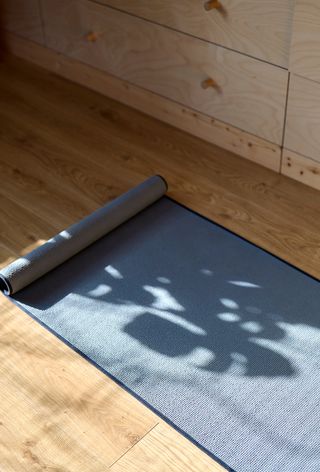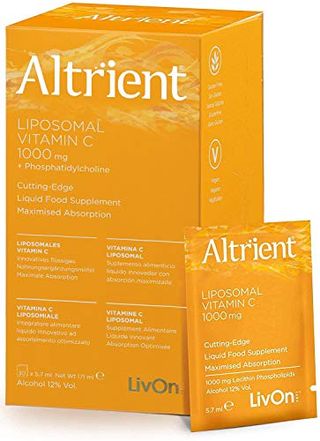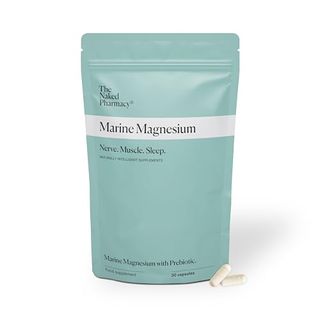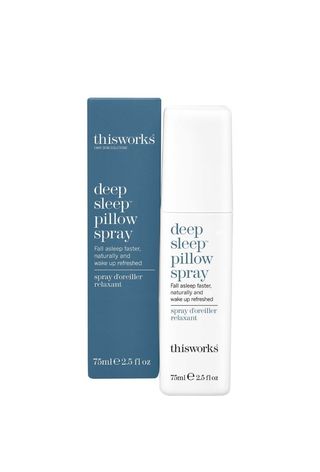We all know that high levels of cortisol (AKA, the stress hormone) is bad for our mental and physical health and wellbeing. I made it one of my New Year’s resolutions to lower my stress levels, but, in all honesty, it is easier said than done. Stress is an unavoidable part of life. However, in today’s world, it’s not uncommon to feel constantly on edge. From juggling work pressures to keeping the plates spinning in personal lives and batting off the constant stream of notifications from our phones while we’re at it, modern life can feel overwhelming at times. Whether it be financial concerns, the political and social landscapes we live in, or major personal life changes, stress can stem from various sources.
So, it’s not surprising that Google searches for ‘how to reduce cortisol’ are currently up 174% over the past 12 months. The World Health Organisation (WHO) officially recognised burnout as a medical diagnosis back in 2019, and lately, my For You Page has been inundated with videos all around the topic, from “cortisol face” to “high cortisol symptoms” and the best supplements to reduce cortisol. It seems cortisol is a particularly hot topic right now, and many of us want to know how to lower our cortisol to boost our health, manage our stress and feel our best.
However, with so much misinformation on social platforms, I decided to enlist the help of hormone doctor Dr Sohère Roked, and nutritionist Maz Packham to share their expert-approved tips to effectively lower our cortisol levels and clear up some myths around the stress hormone. But first, what exactly is cortisol, and why do we need it?
What is cortisol?
(Image credit: Creator Images: Polina Elena)
Cortisol often gets a bad rap, but our bodies do need this hormone in order to carry out different functions (such as regulating our blood pressure and helping us wake up in the morning. “Cortisol is a stress hormone which is made by our adrenal glands,” explains Dr Roked. “It is important because it can help us cope with stresses in life, but our body doesn’t know the difference between perceived stress, like watching scary film, or getting stressed at work, or being chased by a bear. So often, our bodies are in overdrive because we have a lot more stress these days than before,” she says.
While “If we’re producing a lot of cortisol for day to day things, then this can lead to inflammation in our bodies. And eventually, if we’re under stress for a long period of time, it could lead to us producing less cortisol, which can be when you’re in a burnout situation,” she says.
Symptoms of high cortisol
According to Dr Roked, symptoms of high cortisol can include:
– Aches and pains
– Skin rashes
– Poor sleep
– Feeling irritable or agitated
– Feeling tired after exercise, rather than energised
– Feeling both tired and wired
“Another sign of high cortisol is that when you do vigorous exercise, like, say, a HIIT class, a spin class or a big run, you can then actually feel more tired after and not energised, because your cortisol is already high, and then having so much cortisol in your system can lead to feeling quite tired,” she says.
“Having high cortisol can often be described as feeling tired and wired. So you can maybe feel tired all day, but when it comes to relaxing in the evening and winding down, you then feel really wired and can’t sleep,” she adds.
How does high cortisol affect women?
“There aren’t any real symptoms specific to women. However, having a high cortisol can dysregulate our female hormones, so you can sometimes get changes in your period, like the heavier or more painful, or you have a shorter cycle or bleeding in between,” says Dr Roked.
Being on hormonal contraception like the pill doesn’t directly affect our cortisol levels exactly, however, “sometimes, because it’s shutting off our ovaries, which produce our natural estrogen and progesterone and testosterone, we can sometimes have less resilience to deal with the stress,” explains Dr Roked.
How does cortisol affect our face?
You may have seen the term “cortisol face” doing the rounds on TikTok, claiming that having high cortisol can make our faces puffy. And there is some truth to it. “Having high cortisol can sometimes cause facial puffiness,” says Dr Roked, “however, not everyone with a high cortisol gets facial puffiness, but yes, sometimes you can get a puffier face or ankles, or feel like you’re retaining more fluid. It can also sometimes cause rashes, and sometimes that can manifest on the face as well.”
How does high cortisol affect weight?
If you’re trying to lose to weight, you may find that high cortisol levels can make this harder. “Cortisol affects weight because it’s causing inflammation in our system, and then this inflammation leads the body to think we’re under attack,” says Dr Roked. “Because of the high cortisol our body will store fat. So some people find it harder to lose weight if their cortisol is high, even though they’re doing all the right things.”
How to lower cortisol

(Image credit: Creator Images: Polina Elena)
There is no single silver bullet or hack to instantly lowering our cortisol levels. “Regulating your cortisol doesn’t happen overnight,” says Dr Roked. “I myself have had high cortisol for a number of years, and it’s taken me a good four to five years of consistency to try and get things in place.” However, addressing our lifestyle and making changes that positively affect our day to day lives can help reduce our cortisol levels both now and in the long run.
Below are the TK expert-approved tips that Dr Roked and nutritionist Max Packham recommend to effectively lower our cortisol and manage our stress levels.
1. Factor in time to relax

(Image credit: Creator Images: Lea Banchereau)
Our schedule can be jam-packed with responsibilities, however, finding small pockets of time throughout the day can help lower high cortisol levels. “Find small pockets of time to unwind and relax, even just doing a 10 minute meditation app in the morning and evening, maybe some gentle yoga,” says Dr Roked.
For those who are really time poor, try stacking relaxtion into activities you’re already doing each day. “Do something when you’re already doing something else. If you’re on your commute, you could be doing your work, or you could be listening to some relaxing music that puts you in a good state. You could be listening to some meditation or positive affirmations. If you go for a walk at lunchtime, you can either be on your phone, or, you could be really in your walk, looking at nature and being mindful anything else—it’s about consistency,” she says.
2. Prioritise gentle exercise

(Image credit: Stocksy)
The more workouts and the the higher the intensity, the better, right? Not so if we want to lower our cortisol levels. “The mistake people make is doing really high intensity exercise, because that’s what we’ve been taught is exercise,” says Dr Roked. However, lower intensity movement like walking, Pilates and yoga are great forms of exercise, which unlike HIIT workout or a full-on spin class, won’t elevate your stress levels further.
“When I see patients with high cortisol, I ask ‘So do you do yoga?’ and they can be like, ‘No, I don’t really like yoga. It’s too slow, I can’t focus on meditation, because my mind’s quite busy’,” she says. However, if you have a high cortisol, these are the exact forms of exercise you should be doing. “It’s really about carving out small pockets of time to be doing more gentle, mindful things,” says Dr Roked. “I have a patient who runs a lot very intensely, so I asked her if she could maybe run for less time and a bit less intensely. So it’s just about changing your routine up a little bit.”
3. Reduce screen time

(Image credit: Stocksy)
Many of us are guilty of doom-scrolling on our phones, however too much screen time can inhibit our ability to relax and switch off. It can be all easy for the pockets of time we do have during the day to be stolen away when we instead choose to scroll on social media, so try to be mindful about your overall screen time and activrly choose more mindful activities. Dr Roked suggests going for more walks in nature, practising meditation or breath work. “Focusing on the breath can really help regulate cortisol too,” she says.
4. Limit caffeine

Caffeine is fine in moderation, but too much can raise your cortisol levels. “Caffeine is a stimulant, and we know having excess caffeine can increase cortisol levels as it stimulates the adrenal glands, which can lead to elevated cortisol production and therefore increases the stress response,” explains Packham. If you experience elevated stress levels, try limiting your caffeine in take a notice how you feel. “Also look to calming herbal teas such as chamomile and lemon balm to help promote relaxation and have a positive influence on stress reduction,” advises Packham.
6. Limit processed foods

Our diet can play a huge role in our cortisol levels, says Packham. “Eating foods rich in sugar or refined carbs such as pastries, biscuits and breads for example, are broken down quickly and rapidly absorbed into the blood stream causing a spike in blood glucose,” she says. “Insulin is released to help the cells absorb the glucose and store it for energy which rebalances blood glucose levels, but what also happens is that high blood sugar levels, especially if they are constantly spiking, are a stressor on the body which can lead to elevated cortisol levels,” she says. As a result, constantly elevated levels can result in inflammation and lead to other metabolic issues, such as insulin resistance.
Instead, Packham recommends a balanced diet, including the below:
– Fruits, including berries
– Vegetables, including leafy greens
– Whole grains and complex carbohydrates, such as brown nice
– Good quality, lean proteins
– Oily fish, such as salmon and sardines
– Herbal teas
Prioritise a “healthy balanced diet rich in vegetables, fruits, and loaded with vitamins, minerals and antioxidants to reduce inflammation,” says Packham. “Include berries and leafy greens regularly as they are also rich in mega antioxidant vitamin C and magnesium which supports relaxation and can help regulate cortisol levels.”
Good quality proteins are essential. “[These] to help manage blood glucose levels as do wholegrains or complex carbs like brown rice, which can help stabilise blood sugar and minimise the release of excess cortisol triggered by poor blood sugar control,” says Packham.
5. Eat mindfully

It’s not just what we eat, but how we eat, too. Below Packham has some tips to help eat more mindfully and lower our stress levels.
Don’t skip meals: “Think about the timing of your meals, as skipping meals can also contribute to fluctuations in cortisol levels as it can cause your blood glucose levels to drop, which is perceived as a stressor to the body,” says Packham. “In response, the adrenal glands release cortisol to help increase blood sugar by promoting the release of stored glucose from the liver. So, eating regular balanced meals is a good idea if you are looking to keep cortisol levels steady.”
Meal timings: Try to leave at least two or three hours before your last meal of the day and going to sleep. “Eating late or close to bedtime can lead to elevated cortisol levels when you’re trying to get to sleep,” says Packham.
Relax when eating: Eating when we are stressed can compromise our digestion, as well inhibiting the absorption of nutrients. “During times of fight or flight when there is elevated cortisol levels, blood can be diverted away from the gut and into the muscles where the body thinks it may be needed, to escape danger for example—this can also impair effective digestion and nutrient absorption,” says Packham.
Beat bloating: Taking a moment to relax before eating can help with bloating, too. “We know that high cortisol can lead to decreased production of digestive enzymes and stomach acid which affects the digestive process, how well we are absorbing nutrients from our food, and may also lead to bloating,” she says. “Elevated cortisol can also affect gut health in other ways—it can affect motility (the speed that foods moves through the system) so you may experience a change in your bowel motions,” she says.
Breathing before eating: “Take a few deep breaths at the start of your meal to support the parasympathetic nervous system which is known as the rest and digest state, it keeps the body calm, keeps cortisol levels steady and supports a more efficient digestion process
Eat slowly: Mindful eating is really important, so eat slowly and take time to chew your food. “Slow down and make a date with your meal,” recommends Packham. “Try to avoid going on your phone or working at your laptop while your eat as your environment has the potential to cause stress and trigger cortisol production.”
Stay hydrated: “Drink plenty of water throughout the day as dehydration can increase cortisol levels within the blood.
6. Enlist the support of supplements

Both Packham and Dr Roked recommend the below supplements to help lower cortisol.
Vitamin C: “Vitamin C is nourishing for the adrenals, so it can help with cortisol regulation,” says Dr Roked. During times of stress, it can also be depleted. “Replenishing it during periods of acute stress is especially important, as it helps reduce cortisol levels and supports the body’s stress response,” adds Packham.
B Vitamins: These are important for a whole number of functions in the body, but are particularly important for managing cortisol levels.
Magnesium: “Magnesium is an essential mineral depleted in times of stress. It supports GABA activity. GABA is an inhibitory neurotransmitter, that can lower cortisol levels by encouraging relaxation.
Ashwagandha: Herbal adaptogens, such as ashwagandha or rhodiola, work by regulating our cortisol, which can be beneficial for both those with high cortisol, as well as those with low cortisol. “There’s some studies that show it reduces the cytokines and interleukins, which are inflammatory markers in the body,” adds Dr Roked.
Products to help lower cortisol levels

Beauty Pie
Multi-Botanical Blend With Ksm-66 Ashwagandha, Ginseng and Vitamin B5
I tried this formula and saw great benefits from taking it. It contains ashwagandha, vitamin B5, vitamin C and ginseng to support the nervous system and promote mental clarity.

Altrient
Liposomal Vitamin C
“The Altrient liposomal vitamin C which is considered more bioavailable and can effectively cross cell membranes and deliver Vitamin C directly into cells,” says Packham.

The Naked Pharmacy
Marine Magnesium
Packham recommends this magnesium supplements, which helps to support relaxation and better sleep.

Aromatherapy Associates
Relax Deep Relax Bath & Shower Oil
Aromatherapy can be really beneficial to help calm an active mind. Aromatherapy Associate’s Deep Relax Bath & Shower Oil has been a game-changer for leaving me feeling relaxed and ready for a deep sleep.

this works
Deep Sleep Pillow Spray
If you find it difficult to drift off, a pillow mist can help encourage more restorative slumber. This Works’ one is my all-time a favourite—I’m never without a bottle on my nightstand.

NEOM
Wellbeing Perfect Nights Sleep Scented Travel Candle
Make meditation a ritual with a relaxing candle such as Neom’s which contains lavender to help your mind and body unwind.
